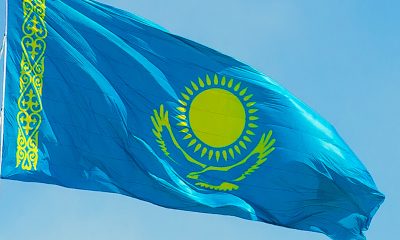World
Out in the World: LGBTQ news from Europe and Asia
Lufthansa is commemorating Pride Month

FRANCE
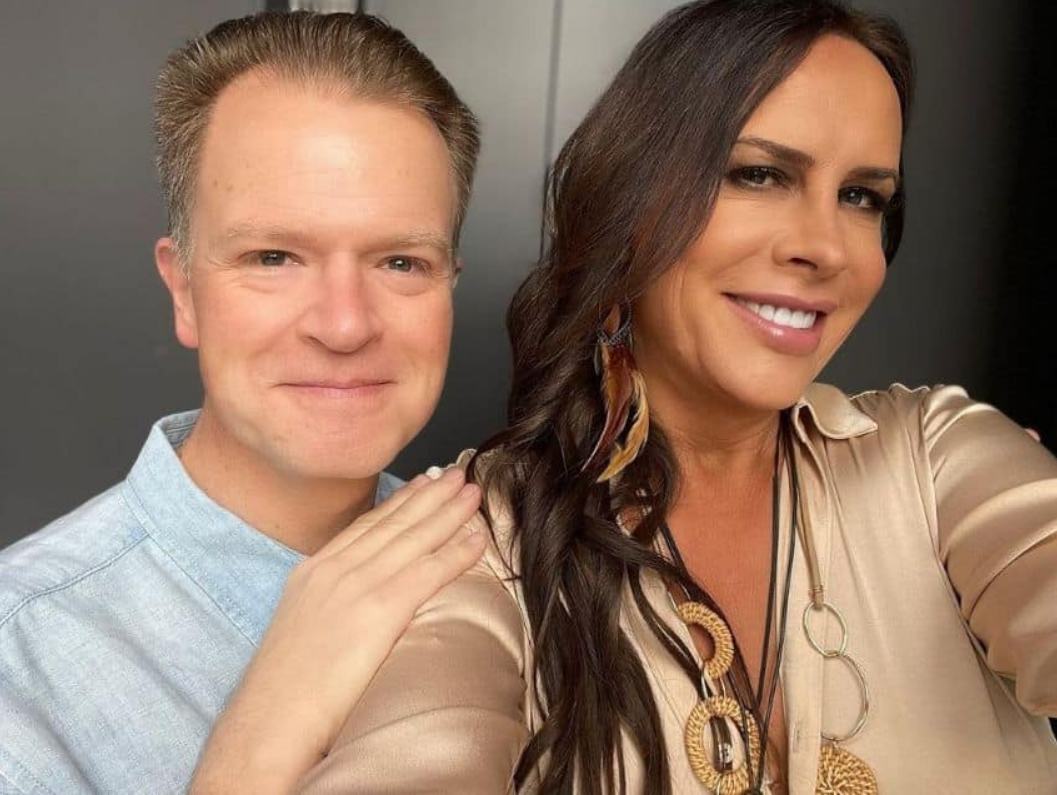
Transgender actress Karla Sofía Gascón has filed a legal complaint against French far-right politician Marion Maréchal-Le Pen, after the Reconquête Party leader posted a tweet decrying the fact that Gascón was awarded Best Actress at the Cannes Film Festival. The complaint has been joined with complaints from six French LGBTQ advocacy groups.
Gascón has been making waves since her international breakthrough performance in the musical gangster film “Emilia Pérez” at the Cannes Film Festival last month. In the film, she plays a cartel leader who hires a lawyer played by Zoe Saldaña to help her flee Mexico with her wife, played by Selena Gomez, so that she can get gender-affirming surgery so she can live as a woman.
The Spanish actress became the first trans woman to win the Best Actress award at the Cannes Film Festival.
After her win, Maréchal-Le Pen posted a tweet that said Gascón’s victory came at a cost for women.
“Therefore, a man receives the prize for … best actress at Cannes. Progress for the left is the erasure of women and mothers,” Le Pen posted on May 26.
Gascón’s lawyer, Etienne Deshoulières, told Agence France-Presse she had filed a legal complaint for “sexist insult on the basis of gender identity.”
The organizations Mousse, Stop Homophobie, Familles LGBT, Adheos, Quazar, and Fédération LBGTQ+ have all filed similar complaints over Maréchal-Le Pen’s tweet.
Maréchal-Le Pen has responded to the complaint by asserting that she will not be silenced.
She is currently on the campaign trail leading the far-right Reconquête Party in elections to the European Parliament scheduled for June 9. She comes from a long pedigree of far-right French politicians who have all been opponents of LGBTQ rights. Her grandfather, Jean-Marie Le Pen, founded the far-right Front National party, which is now led by her aunt Marine Le Pen as the National Rally Party. She has frequently spoken of her desire to repeal same-sex marriage.
Before this all blew up, Gascón told a press conference at Cannes about her own experiences with discrimination as a trans woman.
“People who are trans are subjected to insults or death threats because they exist. In Mexico, there are harsh phrases when addressing trans people. It can be gross,” she said. “I think we should be taken for what we are. We have to continue fighting for our rights. We have our body and we’re allowed to change it.”
“We’re just normal people … I think in the world, you should be treated with respect.”
“Trans people are just normal people,” Spanish actress Karla Sofía Gascón said when asked about her non-binary character in Jacques Audiard’s ‘Emilia Perez’ #cannes2024. pic.twitter.com/BRECoys9jV
— Deadline Hollywood (@DEADLINE) May 19, 2024
In addition to Gascón’s acting award, “Emilia Pérez” scored tremendous reviews from critics at Cannes. A U.S. release date has not yet been announced.
SPAIN
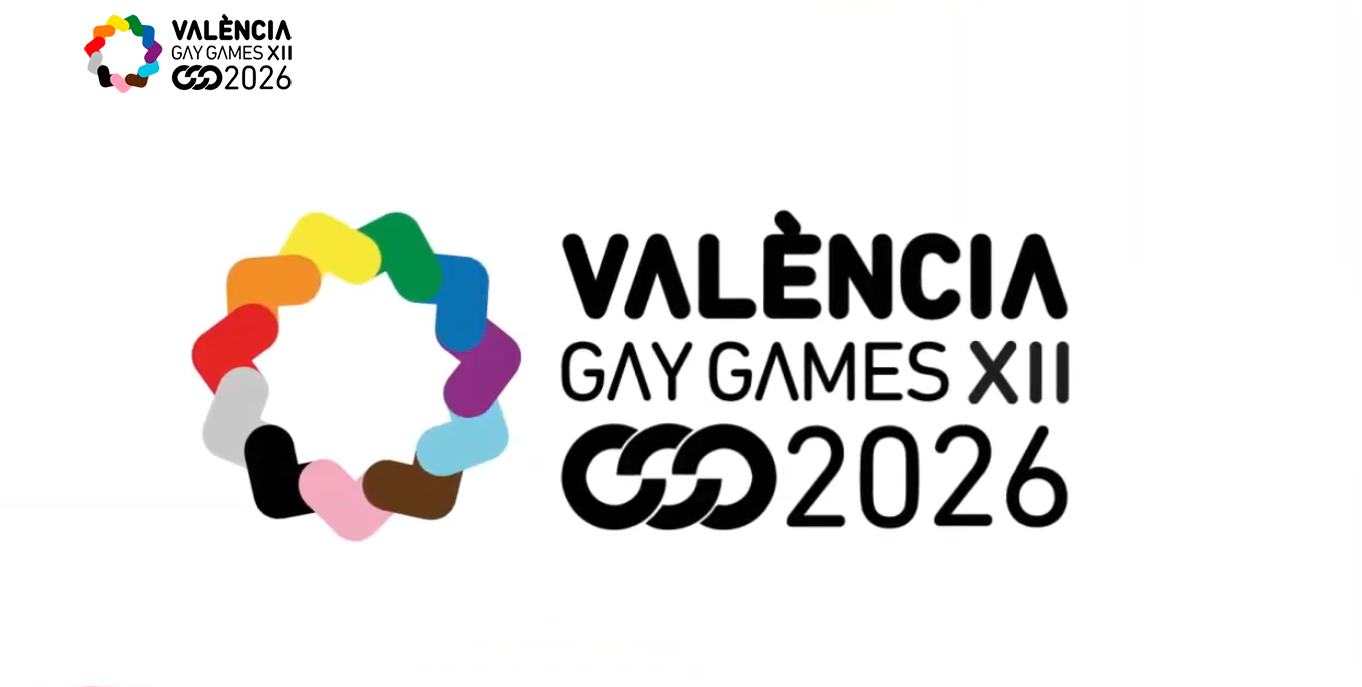
The coalition of LGBTQ groups that were working together to guide the 2026 Gay Games in Valencia, Spain, has pulled out of the event in protest over what they’ve called a hijacking of the project by the city’s newly elected government, which includes a far-right anti-LGBTQ party in the governing coalition.
Spain’s third-largest city was chosen as the games’ host in November 2021, beating out Munich, Germany, and Guadalajara, Mexico. Originally Valencia’s Gay Games organization was led by a coalition of local LGBTQ groups in partnership with the city council.
But that changed last year, when the center-right People’s Party and the far-right Vox party took over the city government. The LGBTQ groups allege that the city reduced their role on the board in an attempt to take over the games, and that the new government has been hostile to LGBTQ people. They also say that the government has censored LGBTQ books, plays, and films.
On May 27, the LGBTQ+ groups — Lambda, Avegal and Dracs, and the umbrella organization València Diversitat Foundation — announced they were pulling out of the games and encouraging the Federation of Gay Games to withdraw from Valencia and award the 2026 games to another city.
“After the last local elections, the Popular Party and Vox have promoted an entire campaign of attacks and cuts in rights against members of the group,” FVD Secretary Jorge Garcia told Spain’s El Salto newspaper. “We have seen how children’s books were withdrawn or plays and films were canceled simply for addressing LGTBI themes or for showing people from the group.”
FVD is calling on the Federation of Gay Games to move the event to another city that is more LGBTQ-friendly, suggesting Munich as a possible alternate venue as it was one of the original bidders for the 2026 event. They’re also saying that unless FVD moves the event, they will “call for a boycott at the local, national, and international level.”
But so far, the federation has said it’s not budging.
In response to the pullout, the federation issued a statement saying that the games would go ahead in Valencia and that the federation has faith that the city government is hosting the games for the right reasons.
“After confidently receiving assurances from the València City Council about their commitment to the organization of the event, the FGG can confirm that the Gay Games will continue to be held in Valencia in 2026,” the statement reads. “The FGG has met various times with them to gain assurances from them about their commitment to the funding of the event, the availability of government-owned sports and culture venues, and the confirmation that participants will be able to attend and compete as their authentic selves.”
This isn’t the first time the Gay Games has experienced turmoil.
After being postponed a year due to the pandemic, last year’s Gay Games Hong Kong was divided and co-hosted with Guadalajara, Mexico, amid concerns about the worsening human rights and democracy situation in China, and deepening opposition from some local officials who were more closely aligned with Beijing.
The far-right Vox party has long been hostile to LGBTQ rights in Spain and has seen its fortunes rise along with other conservative or right-leaning parties across Europe. In Spanish cities and regions where they’ve come into power either alone or in coalition with the People’s Party, it has repealed local laws meant to protect LGBTQ people from discrimination and conversion therapy. On the national level, it has campaigned to repeal same-sex marriage and legal recognition of trans people.
GERMANY

German airlines Lufthansa is celebrating Pride Month 2024 by spoofing the company’s name with “Lovehansa” on several aircraft in its fleet. On X Deutsche Lufthansa AG wrote:
“It’s that time of the year where we highlight the importance of openness, tolerance, and equal love. We’ve been coloring the air with Lovehansa for the last two years and will continue to spread the love across borders and skies. Happy Pride Season!
It’s that time of the year where we highlight the importance of openness, tolerance, and equal love.
We’ve been coloring the air with Lovehansa for the last two years and will continue to spread the love across borders and skies.
Happy Pride Season! 🏳️🌈🫶#Lufthansa pic.twitter.com/OrJMYBjJ7P
— Lufthansa (@lufthansa) June 1, 2024
UNITED KINGDOM
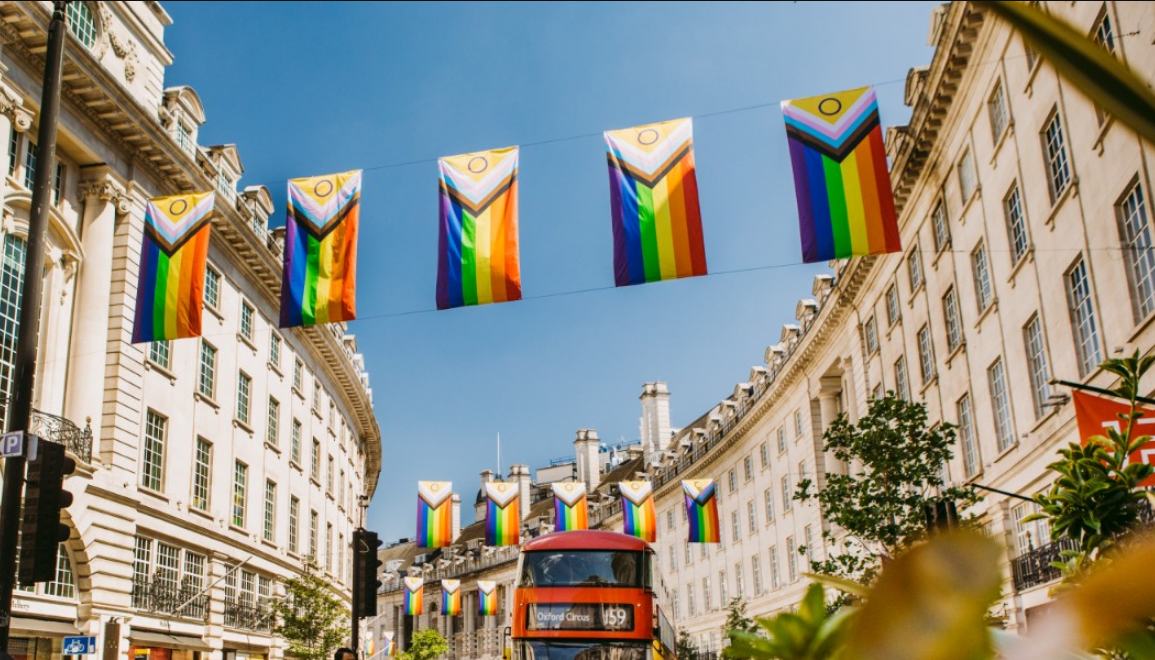
A conservative Christian group has launched a petition calling for the city of Westminster in central London to remove Progress Pride flags from Regent Street, alleging that the flags are divisive, offensive, and “ugly.”
The group Christian Concern has collected more than 20,000 signatures of its 50,000 goal on its CitizenGo petition. The petition is addressed to Westminster City Council Leader Adam Hug and calls on him to “stop authorizing large scale displays of Pride Progress flags in Westminster, in particular Regent Street.”
Progress Pride flags have been strung across Regent Street — home to a world-famous luxury shopping district — for years, and they’re scheduled to return for June and July this year. Regent Street is controlled by the Crown Estates, a semi-public agency that manages the monarch’s property holdings.
In their letter, Christian Concern says the Progress Pride flags sow division in society.
“They do not promote inclusion — in fact, they exacerbate tensions between people of different characteristics — religions, sexual orientations, and gender identity. Many people experience these flags as an attack on historic, traditional beliefs about sex and gender. They send the message that people holding these views — which are worthy of respect in a democratic society — are not welcome,” the letter says.
In the petition’s explanatory note, Christian Concern alleges the Progress Pride flag is particularly offensive, because it includes colors symbolic of trans people and people of color.
“Rainbow flags are bad enough — but ‘Progress Pride’ flags add transgender stripes — a movement that has done untold damage to gender-questioning children in recent years. They also add brown and black stripes, wrongly conflating racial identity with sexual and gender identities,” it says.
“These flags are particularly offensive, and ugly to boot,” it says. “These divisive, gaudy displays are completely inappropriate for this historic, iconic street at the center of London.”
London’s annual Pride Parade will occur this year on June 29, and as usual, the route will pass through Piccadilly Circus, at the foot of Regent Street.
Pride in London, which organizes the parade, says it expects up to 35,000 people marching this year, making it the largest London Pride ever. The festivities come amid a growing moral panic against trans people in the U.K., fueled by a government that has been increasingly hostile to trans and queer people, and celebrities like JK Rowling, who have made opposing trans rights a key part of their identity.
The march comes just days before national elections, scheduled for July 4, which the governing Conservative Party is widely expected to lose.
RUSSIA
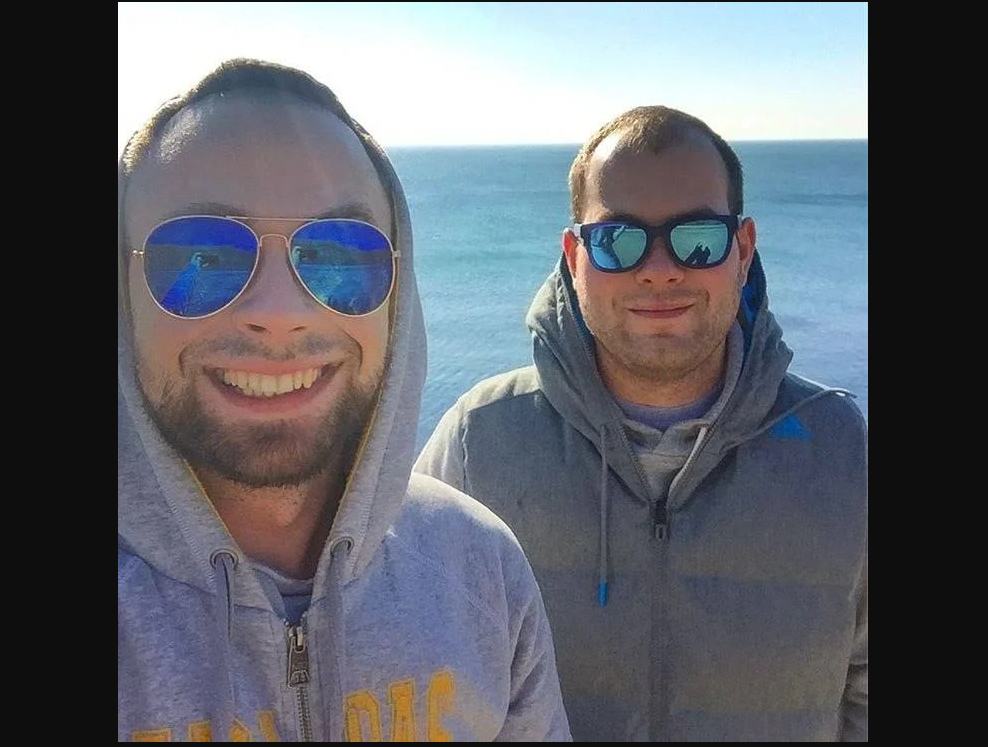
The governor of Russia’s Samara oblast has resigned amid accusations that his government violated Russia’s “LGBT Propaganda” law by appointing staff who were in same-sex relationships, Novaya Gazeta Europe reports.
Dmitry Azarov announced his resignation over the Russian social media network Vkontakte on May 28. His move came after several of his government’s officials were arrested on corruption charges, and following several allegations related to the “LGBT propaganda” law.
Since 2013, Russian law has banned the promotion of “non-traditional sexual relationships” among minors, and in 2022, the law was expanded to ban promotion of LGBTQ rights to people of any age.. Last year, the Russian Supreme Court and the Russian government added the “LGBT movement” to a list of banned extremist movements, intensifying the crackdown on LGBTQ expression.
Alex Khinshtein, a member of the President Vladimir Putin’s United Russia Party who represents Samara in the Russian parliament, and who authored the original ‘LGBT propaganda law, kicked off a series of allegations against officials in Azarov’s government.
He alleged that the Youth Policy Minister Sergey Burtsev and another official working in youth policy, Denis Leontovich, were in same-sex relationships. Both denied the allegations, but left their positions shortly after.
The resignations come amid a worsening crackdown on LGBTQ people in Russia. In March, several Moscow gay bars were raided by police, and a man was charged with using extremist symbols after he allegedly used a rainbow flag emoji in a private group chat.
JAPAN

Three cities across Japan announced that they would begin registering same-sex couples the same way that they register heterosexual couples in common-law marriages, the latest advancement in an ongoing struggle for legal recognition of same-sex couples in the East Asian nation.
Omura in Nagasaki prefecture announced the change on May 2, after Keita Matsuura, 38, and Yutaro Fujiyama, 39, made the request to register their relationship.
It was followed quickly by Kanuma in Tochigi prefecture. Kurayoshi in Tottori prefecture had initiated a similar procedure in October 2023. In all three cities, people in same-sex couples will be listed as “husband” or “wife” on their resident registration cards, with “not yet notified” added in brackets to indicate that the marriage is not officially registered, similar to opposite-sex common-law marriages.
In Japan, common-law heterosexual couples are treated equally to married couples, but it’s not clear yet if that treatment will carry over to same-sex couples who are registered this way.
“The possibility of obtaining rights equivalent to those of de facto marriages will arise,” Matsuura told Asahi news.
Same-sex marriages are not recognized in Japan, although several cases seeking to have it legalized are currently winding their way through district courts on their way to a likely Supreme Court case. Five district courts and one appellate court have found the current ban on same-sex marriage to be unconstitutional, while one has upheld the ban.
Meanwhile, hundreds of municipalities and 26 of Japan’s 47 prefectures across Japan have created partnership oath registries for same-sex couples. While these registries are not legally binding, they have helped some couples access some services and benefits only available to married couples.
Egypt
Iran, Egypt object to playing in Seattle World Cup ‘Pride Match’
Game to take place on June 26

Iran and Egypt have objected to playing in a “Pride Match” that will take place in Seattle during the 2026 World Cup.
The Egyptian Football Association on Tuesday said it told FIFA Secretary General Mattias Grafström in a letter that “it categorically rejects holding any activities related to supporting (homosexuality) during the match between the Egyptian national team and Iran, scheduled to be held in Seattle, USA, on June 26, 2026, in the third round of the group stage of the 2026 World Cup.” Football Federation Islamic Republic of Iran President Mehdi Taj told ISNA, a semi-official Iranian news agency that both his country and Egypt “protested this issue.”
The 2026 World Cup will take place in the U.S., Canada, and Mexico. The draw took place at the Kennedy Center on Dec. 5.
Iran is among the handful of countries in which consensual same-sex sexual relations remain punishable by death.
The State Department’s 2023 human rights report notes that while Egyptian law “did not explicitly criminalize consensual same-sex sexual activity, authorities regularly arrested and prosecuted LGBTQI+ persons on charges including ‘debauchery,’ prostitution, and ‘violating family values.’” Egyptian authorities “also reportedly prosecuted LGBTQI+ individuals for ‘misuse of social media.’”
“This resulted in de facto criminalization of same-sex conduct and identity,” notes the report.
The 2024 human rights report the State Department released earlier this year did not include LGBTQ-specific references.
Soccer has ‘unique power to unite people across borders, cultures, and beliefs’
The June 26 match between Iran and Egypt coincides with Seattle Pride. The Washington Post reported the Seattle FIFA World Cup 2026 Local Organizing Committee decided to hold the “Pride Match” before last week’s draw.
“As the Local Organizing Committee, SeattleFWC26’s role is to prepare our city to host the matches and manage the city experience outside of Seattle Stadium,” said SeattleFWC26 Vice President of Communications Hana Tadesse in a statement the committee sent to the Washington Blade on Wednesday. “SeattleFWC26 is moving forward as planned with our community programming outside the stadium during Pride weekend and throughout the tournament, partnering with LGBTQ+ leaders, artists, and business owners to elevate existing Pride celebrations across Washington.”
“Football has a unique power to unite people across borders, cultures, and beliefs,” added Tadeese. “The Pacific Northwest is home to one of the nation’s largest Iranian-American communities, a thriving Egyptian diaspora, and rich communities representing all nations we’re hosting in Seattle. We’re committed to ensuring all residents and visitors experience the warmth, respect, and dignity that defines our region.”
The 2034 World Cup will take place in Saudi Arabia.
Consensual same-sex sexual relations remain punishable by death in the country. The 2022 World Cup took place in neighboring Qatar, despite concerns over the country’s anti-LGBTQ rights record.
Spain
Victory Institute honors transgender Spanish senator in D.C.
Carla Antonelli describes Trump policies as ‘absolutely terrifying’
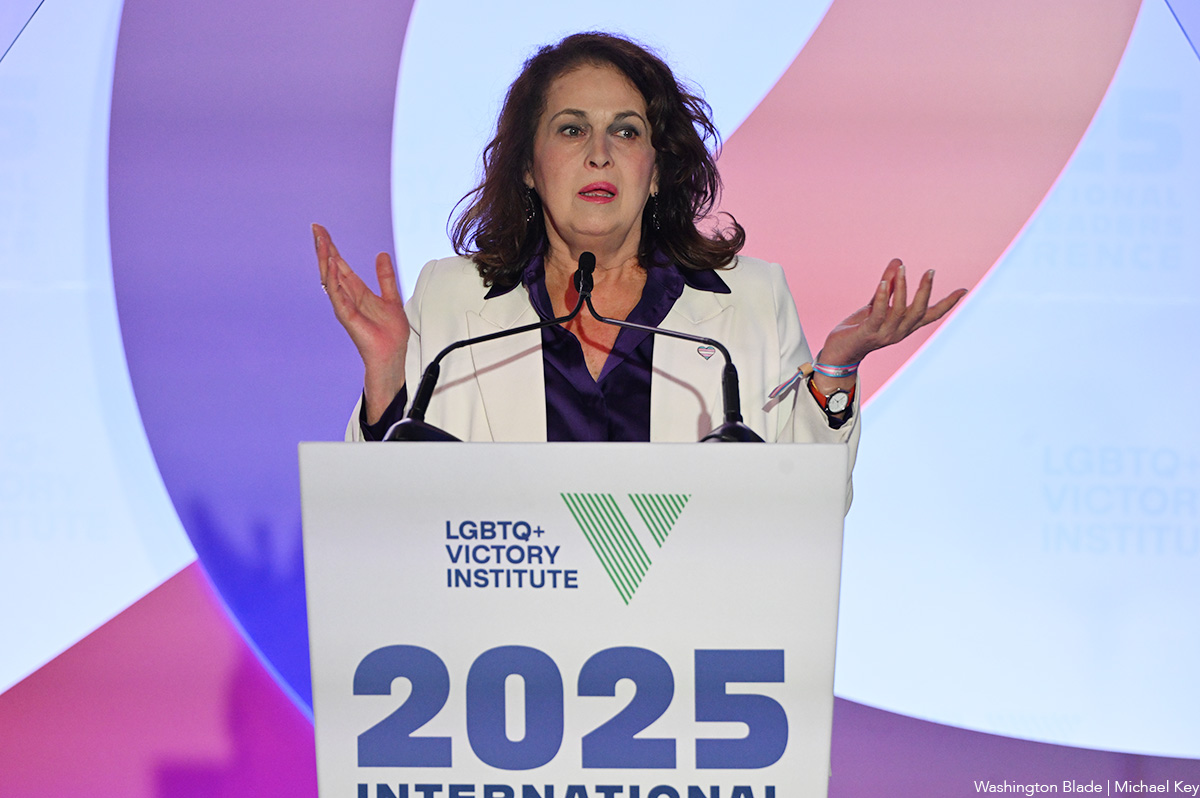
The LGBTQ+ Victory Institute on Dec. 5 inducted Spanish Sen. Carla Antonelli into its LGBTQ+ Political Hall of Fame.
Antonelli in 2011 became the first openly transgender woman elected to a regional legislative office in Spain when she won a seat in the Madrid Assembly.
She left Prime Minister Pedro Sánchez’s leftist Spanish Socialist Workers’ Party in 2022. Antonelli in 2023 became the first openly trans woman in the Spanish Senate when Más Madrid, a progressive regional party, named her Pablo Gómez Perpinyà’s successor in the chamber.
The Hall of Fame induction took place during the Victory Institute’s annual International LGBTQ+ Leaders Conference at the JW Marriott Hotel in downtown D.C. The Washington Blade spoke with Antonelli on Dec. 6.
“We are living in rather turbulent times, hence the importance and necessity of gatherings like this one … to unite in these times, come together, and develop common strategies and policies.”
Antonelli, 66, grew up in Güímar, a municipality on the island of Tenerife in Spain’s Canary Islands.
She said transphobia forced her to leave her hometown in 1977, and she turned to sex work to support herself. Antonelli’s political activism began that year when she joined the campaign against a 1970 law that criminalized consensual same-sex sexual acts and LGBTQ people.
General Francisco Franco, whose regime governed the country from 1936-1975, approved the Law on Social Danger and Rehabilitation. Spain in 1995 removed the statute’s remaining provisions from its penal code.
Antonelli in the 1980s became a well-known actress. She is also a former spokesperson for Federación Estatal de Lesbianas, Gays, Transexuales y Bisexuales, a Spanish LGBTQ advocacy group known by the acronym FELGTB.
‘We will not go back to the margins’
Antonelli in February gave an impassioned speech in support of trans rights on the Senate floor.
She specifically singled out members of Vox, a far-right political party, over their efforts to repeal a landmark 2023 law that allows people who are at least 16 to legally change their gender without medical intervention. Antonelli’s speech — and her proclamation that “we will not go back to the margins” — quickly went viral.
Antonelli told the Blade she received messages of support from people in Algeria, Australia, Turkey, Mauritius, and elsewhere around the world. She added her speech was “the conclusion of everything I can feel at any given moment, also the pride of having lived through all these historical processes.”
“For whatever reason, I was born in ’59, and I lived through the dictatorship in my country,” said Antonelli. “I lived through the dictator’s death and I lived through what Spain was like exactly 50 years ago. It began to walk in freedom, and so freedom must be defended.”
Antonelli feared US would not allow her into the country
The Victory Institute conference took place less than a year after the Trump-Vance administration took office.
Antonelli in June traveled to D.C. and participated in WorldPride 2025. She admitted the White House’s anti-trans policies left her wondering whether the U.S. would allow her into the country as a trans woman.
The White House only recognizes two genders: male and female.
President Donald Trump after he took office signed an executive order that bans the State Department from issuing passports with “X” gender markers. U.S. Citizenship and Immigration Services in August announced it will ensure “male aliens seeking immigration benefits aren’t coming to the U.S. to participate in women’s sports.”
Spain is among the countries that have issued advisories for trans and nonbinary people who are planning to visit the U.S.
“This speaks volumes about the policies of intimidation and targeting they’re implementing, policies that have made trans people scapegoats for all of humanity’s ills,” Antonelli told the Blade.
“In the United States, now with Trump, it’s absolutely terrifying because we’re talking about not just taking away a right, they’re going against our lives, against our very existence,” she added.
Antonelli in June met U.S. Rep. Sarah McBride (D-Del.), the first openly trans woman elected to Congress. Antonelli told the Blade she “watched with sorrow” how U.S. Rep. Nancy Mace (R-S.C.) and other Republicans treated the Delaware Democrat after her historic 2024 election.
“The first thing some vengeful scoundrels, thirsty for evil, do is prohibit her from entering the women’s restrooms,” said Antonelli.
“It’s nothing more than a desire to humiliate, to degrade,” she added. “Behind many of these policies lies a desire to do harm. In other words, these are bad people, evil people whose principles aren’t an ideology. They revel in it. They enjoy thinking about how they are making other human beings suffer.”
Antonelli also stressed “visibility” is “freedom.”
“The more they try to erase us, the more we have to be visible,” she said. “They know perfectly well that visibility inevitably leads to normality, to normalization, which is nothing more than what is repeated daily, routinely. What’s normal is what you see every day, so they’re trying to prevent us from being visible in every way possible, because what they don’t want is for society to accept, to live with this truth.”
Antonelli also offered advice for trans people who want to run for office.
“Always be upfront,” she said. “Don’t hold back, but above all, don’t forget where you come from. Because you might be lucky enough to rise and become a representative of the people, but don’t forget your origins.”
Antonelli noted she is the Más Madrid spokesperson for health, equality, culture, and other issues, but added she “will never, never, never abandon my trans sisters and the LGBTQ+ community.”
“I never severed times with my roots,” Antonelli told the Blade. “My roots are a conservative family, a town I had to flee and to which I didn’t return until 32 years later. My future, my past, is a street corner. My past is being able to make that journey in a democracy and go from that street corner to a seat in the Madrid Assembly and then from there to a seat in the Senate. And that is precisely the greatness of democracy.”
She ended the interview by a quote she gave to El País, a Spanish newspaper.
“Those who used to call us faggots have to now call us ‘your honors,’” said Antonelli.

What does longing for your child look like? What happens when they resurface in front of you, when that rift was once an immeasurable open sea — a searing pain that silently hollowed you out for decades? For the child wrenched away by circumstance and thrown into the purgatory of always feeling in-between: in between home, in between being a whole person, in between who you could have been and who you are now — what does it mean to become and belong?
In filmmaker Jota Mun’s documentary “Between Goodbyes”, the fragmented yearning for home, family and identity are woven together into a tremendous and at times dream-like contemplation of the self, focused on various family members set adrift by a deceitful international adoption machine.
The story is focused on Mieke Murkes, a queer Korean adoptee who grew up in the rural village of Vaassen in the Netherlands. Shortly after her birth in 1982, she was raised by Willy, a devout evangelical Christian woman. But the story does not begin with Mieke in Vaassen. It begins with Okgyun, her original mother, walking through an ephemeral meadow as she makes her way to a shoreline. This is our first point of loss.
It is important to understand how the stories of Okgyun and Mieke exist. In “Between Goodbyes”, we see a frustrating glimpse into the cultural and political forces that created this separation. Since 1955, 200,000 children have been adopted from South Korea, and just three years ago, several of these adoptees found that their documents had been falsified. Murkes would sift through her own papers in “Between Goodbyes”, noting their dull and rote descriptions of her physical appearance and health. “The paperwork is as if you’re buying a new car,” Murkes says.
Written nearby: “Both parents are unknown,” a falsehood that leaves the family breathless. It is a gut punch.
This March, a South Korean governmental agency admitted that it had violated the rights of adoptees, but an investigation that began in 2022 at the behest of over 350 Korean adoptees has been halted. Whether or not retribution can ever be paid is up in the air, but the reeling grief and complicated self-reckoning many of these adoptees and their families face are rendered and expressed with deep tenderness in Mun’s documentary. “I did not know how to fit the Korean part of me in there,” Murkes said.
When Okgyun was pregnant with Mieke, she was also raising three other daughters: Mijin, Mikyung and Taekyung. The population was booming, and mothers like herself were being shamed for continuing to have children. Considering abortion, Okgyun recounts a midwife who convinced her not to go through with it — that if the child were a boy, she should keep him. If it turned out to be a girl, she could give her away to live “a good life” in the U.S. “Men are always positioned above women,” Okgyun said. “I always hated that.”
After Mieke was born, Okgyun’s mother-in-law told her to give her away. “She was gone before I saw her face,” Okgyun said. “I let her go.” Her guilt tightens her throat, trembles in her voice. “I dreamed of Mieke a lot. I can’t tell you how many times,” Okgyun said. “Dreaming and forgetting, dreaming, and forgetting. The thought that kept me going is that one day I can find Mieke.”
What ensued was a several years-long search. Kwangho, Mieke’s original father, pleaded with an adoption agency for any leads about Mieke. They denied him several times and his desperation only grew. “I had to find her to be at peace before I die,” he said.
Meanwhile, Mieke’s own grief and confusion were compounding. When she was beginning to discover her queerness, she was deeply ingrained in local religious spaces. What made her feel free, the church treated as an aberration — as behavior that resulted from loss.
When she would eventually meet her original family, they, too, had trouble processing her queer identity and masculine presentation. To them, queerness was “acquired” from being raised in a foreign land. With time, they grew to embrace Mieke and her partner, Marit, even as misunderstandings arose. Of this, Mieke’s conflictedness is explored. Gay rights are more advanced and accepted in the Netherlands than in South Korea, but this does not mean contending with her queerness would have been easy with her adoptive mother, Willy. “It probably would have disappointed her a lot,” Mieke tearfully revealed.
Mieke’s stepping in between knowing and unknowing is reminiscent of Okgyun’s dreaming and forgetting — their grief and confusion move within them, replicating themselves over and over again. “Between Goodbyes” dives deeply into this in order to offer a portrait of healing: of its complications and the necessity of community support to achieve this.
Mun discusses the film with the Los Angeles Blade, diving into how reunification between adoptees and original family members is, in many ways, made nearly impossible by factors like language and cultural barriers enforced and held tightly in place by the international adoption system. This film illustrates a break in this narrative and the mighty efforts behind it all.
A broadcast version of “Between Goodbyes” is now available to stream on PBS. See below for more information.
Can you tell me about the inception of making “Between Goodbyes”? Have you always wanted to tell a story about international Korean adoption from a queer perspective?
As a queer Korean adoptee myself, [there are] so many intersections that I haven’t quite seen on screen before. So I was always really excited about making something about my community. And then I’d say, in 2017, is around when I started getting closer to zeroing in on the idea. I think part of it was through befriending Mieke and hearing her parents’ story. Hearing about their efforts really blew my mind.
So much of the standard narrative is that adoptees initiate the search. So even before meeting [Okgyun and Kwangho], it just felt like it spoke so loudly of not only their character, but a piece of the puzzle that I had never considered — that they could be longing for us. And I think as an adoptee, you always wonder what [your original parents] would think. So it’s very noticeable that we almost don’t ever hear from them directly. Even in narrative stories of adoption, they’re usually deleted, or they’re written in a really flat way that feels like they’re serving the plot. I’ve never seen a depiction of birth mothers in particular who are questioning their own circumstances or feel angry about it.
There’s a lot of nuance given to all of the different people that we see in the story. The pain is layered and deep, and we don’t just view it from one perspective. What was it like having to portray this hurt, when many adoption stories typically focus solely on the adoptee’s emotional and personal journey?
It’s so unique through each lens, even though it’s the same pain. Like her sisters — of course, it’s going to affect them. Even if she never said anything, they must have felt it. It just ripples out to everyone and keeps expanding.
Originally, it was focused on Mieke, because that’s who I had the most access to, and she’s the closest to me in terms of general identity markers. So in my mind, I felt more confident that I could tell her story in a nuanced way. But what about Okgyun? I was hitting a similar barrier of communication that Mieke had hit. That’s part of why our main producer, Zoe Sua Cho, was so essential in conveying more about Okygun and the original family’s side of the story.
When I was in the early stages of developing the film, there was a quote that I felt was really inspirational: “In our hurting, we did not realize that we were stolen from each other” (by SN Désirée Cha from Outsiders Within Writing on Transracial Adoption.) The same quote came back to me in the edit and helped us find a narrative structure that went beyond just one person’s perspective.
What if the main character is the collective trauma, a singular event that causes the family to splinter and suffer across decades? I wanted to explore how tempting it is in these moments of righteous anger at systemic problems to end up fighting with each other. I feel like they both had to mourn something that was so much bigger than any one family. Mieke’s adoption affected so many people that I almost wanted that to be the main character. How do we not get lost in that pain and still try to come back together? It’s too much to carry alone.
So the main character is not necessarily one person, but the issue that you’re trying to tackle throughout the story. It also makes me think about how the documentary itself, or the making of it, also participates in this community healing that I feel like was the focus of “Between Goodbyes”.
I hope it’s an important layer. Suffice to say I think I always deflect to name a singular main character. I wanted to show everyone’s point of view while of course highlighting especially Okgyun and Mieke.
What else can you share about your approach to filmmaking?
You know, I was on this wonderful panel earlier this year, hosted by A-DOC, and I kind of surprised myself in preparing for it. I realized, actually, I have a lot of strong beliefs on filmmaking ethics that I hope come through in the film. For example, I reject the genius artist myth. The fantasy that if an artist is talented enough, they get permission to treat everyone around them terribly. That exploitation and squeezing things out of people is the best way to make great art.
Instead, I want to believe that the sensitivity, the care, and emotional work I poured in is going to come shining through in the film. And I do think that’s part of why we witnessed so many intensely vulnerable moments that I couldn’t have predicted.
This emotional connection to the film is also, visually, represented in artistic and inventive ways. There are sequences interspersed throughout that feel dream-like and cinematic. Creatively, what was it like to structure and craft how you wanted those scenes to be, the weight that they carried, and why you wanted to represent them in that way?
Aw, thanks for saying so! I was clear from the beginning that I wanted certain moments in the film to look as cinematic and epically life-changing as they feel in real life. Because visually, sometimes these moments of heartbreak can look rather dull. The deep heartbreak of a farewell at the airport. What does it look like? It looks like two people hugging in a very normal-looking terminal. But that’s not what it feels like. It feels larger than life. So to me, every single one of the art [scenes] has a very literal symbolism in my mind.
I really enjoy the complexity given to the family, both through the artistic symbolism and through the different angles we get to view them in. When it comes to Mieke’s queer identity, there are varying levels of acceptance and also tension that co-exist. One of her sisters, Mikyung, skirts around terms and labels, instead saying Mieke is “like that,” and “I don’t know anyone like that.” There was this feeling that queerness is learned or acquired elsewhere — that Mieke “wouldn’t have turned out like that” if she had grown up with her original family in Korea.
I can’t be sure what they were implying but you know, I definitely didn’t want to fall into a common trope of seeing Western values as being so liberal and accepting and framing all other cultures as homophobic. I want to be clear that there is a queer community in Seoul. It’s not the same as Amsterdam, of course, but it does exist.
That’s part of why it was important for me to include Mieke mentioned what she thinks her Dutch mom would have thought — just to clarify that homophobes are everywhere. There are plenty of them here in the West as well. Mieke’s Dutch parents were Evangelist Christians. So it’s not like everyone in the West is free to be a lesbian, you know?
Another moment that struck me in the film was a moment where we, as the audience, get to see you clearly. In this scene, we see you and Mieke on a rooftop, and you’re consoling her as she’s trying to prepare for a difficult conversation with her original mother, Okgyun. Did you have to find a balance in terms of being the director of this film and being Mieke’s friend?
It was really important to me to show friendship and how much that can help you along the journey. You think that for her to emotionally process things, it would have to be with her mom. But that rooftop conversation felt so transformative in itself. And then what ended up being the kind of mirror scene to that was Okgyun talking to Ruth [a fellow original mother]. She needed a buddy, too. How many times in life are we like: the opposing party doesn’t need to get it, but if my friend just could — that would give me so much relief and patience to enter the actual conversation with the person I’m upset with.
Being so personally close to Mieke and her family meant that my film was about all people I loved and cared about. I think the documentary field comes from such a long history of an anthropological approach. It’s like, “I’ve helicoptered in, and I just met you, but I’m the expert artist.” I wish the ethos were the opposite; we need to care about everyone, from the participants to the crew. I don’t want the blood, sweat, and tears to come through on the screen. I hope that watching it makes people feel cloaked in tenderness and care.
I was so worried about everyone, probably too much. It’s such a weird thing to ask people to do, to be in a film, so I took that with a lot of responsibility. Be aware of the impact you’re having. I am having an effect on this family’s life. I almost wanted to be like: “Forget my art project.” This is about the rest of their lives as a family, and that’s more important. So it became a light on my path, trying to make decisions as best I could to have a positive impact on their relationship.
It almost made me question my ethics in a different direction. “Am I intervening too much?” And that’s a strange thing: I have to admit I exist. I’m not a fly on the wall. And I think that’s why the conversation on the roof was really the most vulnerable for me, because I was showing myself. I’ve actually been here the whole time, cheering them on or trying to diffuse tension. I set out to make a film about how hard it is to stay in reunion, but now I’ve realized I’ll be heartbroken if their reunion doesn’t last. So in many ways the film was really just a vehicle for my attempt at keeping us all connected across so many distances, and that’s my own emotional journey or connection to their story.
Mun plans to release the full-length film in 2026, along with deleted scenes and additional footage. Up-to-date information can be found on the film’s Instagram page.





